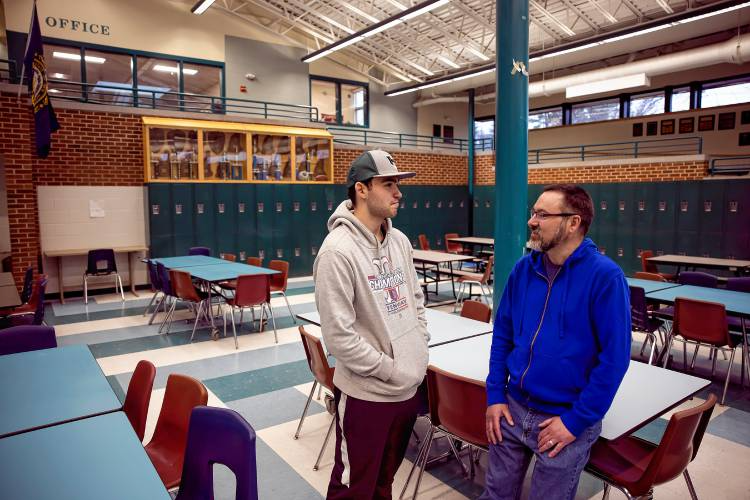In the initial second after impact, all people not annihilated by the bomb’s blast were lethally poisoned by radiation in Hiroshima and Nagasaki, Japan. During the detonation’s aftermath, 200,000 people were immediately killed and in successive years thousands more died of cancer, mutations and other complications brought about by the bombing. The firewall created by the blast was the same temperature as the sun.
This is all according to American Friends Service Committee Program Director Dr. Joseph Gerson, who introduced the issue of nuclear disarmament to a small but attentive audience in the Memorial Union Building’s (MUB) Strafford Room on Tuesday, Oct. 18 at 7 p.m. Gerson, who has over four decades of activism and policy experience, was invited by the Peace and Justice League (PJL) to speak at “3 Minutes Till Midnight: the Global Struggle for a Nuclear Weapons Free World.” The three minutes in the title of the lecture refer to the Doomsday Clock maintained by the Bulletin of Atomic Scientists that annotates the likelihood of a doomsday event.
PJL is a UNH student organization that “works toward peace and justice in all senses of the word,” according to senior PJL member Chris Grinley. He also said that PJL provides the UNH student body with a “platform to fight for issues, and a place to organize with students with a passion for justice.”
PJL regularly organizes panels and lectures on campus; one of their largest events was former Democratic presidential nomination candidate, Vermont Senator Bernie Sanders’ speech at the Field House last September 2015. Grinley said that the organization does not focus on a single issue but rotates their focus topics regularly to “reflect the interest of current members.” PJL’s office is in MUB room 139.
Gerson described the U.S. nuclear attack’s ramifications on Japan, citing the hundreds of thousands of dead civilians and the super-sonic carnage speed. His detailed relay of the horrible event transformed the ominous and cerebral concept of nuclear capabilities into a tangible reference point for his audience. He clicked through pictures of the post-bombing desolation, pausing to explain the bomb’s significance and acknowledge the numerous disfigurements, suicide attempts and trauma it brought about. Gerson said that his background in international activism has led him to work personally with blast survivors, providing him with real human incite on the nuclear issue that few hear first-hand.
Gerson used the accounts of past human suffering to underscore the immense human misery potentially awaiting the world if there is no abolition of nuclear weapons. He cited international instability and the litany of close calls from the 1940s to present day as examples of how nuclear threats did not conclude with the Cold War. Gerson said that tension between the U.S. and Russia was one of his primary concerns.
According to Gerson, the current Russian U.N. ambassadors’ assessment said “tensions are probably the worst they’ve been since 1973.”
Gerson proposed that an active and informed populace should hold public officials accountable, and pressure governments to reaffirm their commitments to past disarmament agreements.
Less than one dozen people attended the lecture on Tuesday night, and most were local community members rather than students. Freshman political science and international affairs major Rory O’Neil was the only undergraduate in attendance not affiliated with PJL or The New Hampshire.
O’Neil said she decided to attend because she “knew it was important to know about,” going on to explain her effort to “soak up knowledge” this semester. She said she thinks that the college experience is most fulfilling when “people are willing to explore different things.”
Grinley said he thinks the 2016 presidential election monopolized the time, patience and interest of students that would have otherwise normally attended such an event.
Gerson and American Friends Service Committee members appeared unfazed by the small number in attendance, however. Gerson acknowledged that public interest in the cause had reached its zenith in the early ‘80s, but that the nostalgia that grips his ideological peers when looking back to the ‘60s movements is misguided. He asserted that things never were as seamless as they appeared in hindsight, and that an effective and informed minority was the primary driver of progress.
Gerson’s assessment of the current state of American politics is that the ever present threat of a nuclear war has placed humanity “in a grave situation” and that concerned citizens need to “awaken those among us,” so that America will grapple with existential questions, not just “whose tongue went where when.”
Follow Us on Twitter
MUB lecture confronts subject of nuclear disarmament
October 20, 2016
Leave a Comment
More to Discover




















